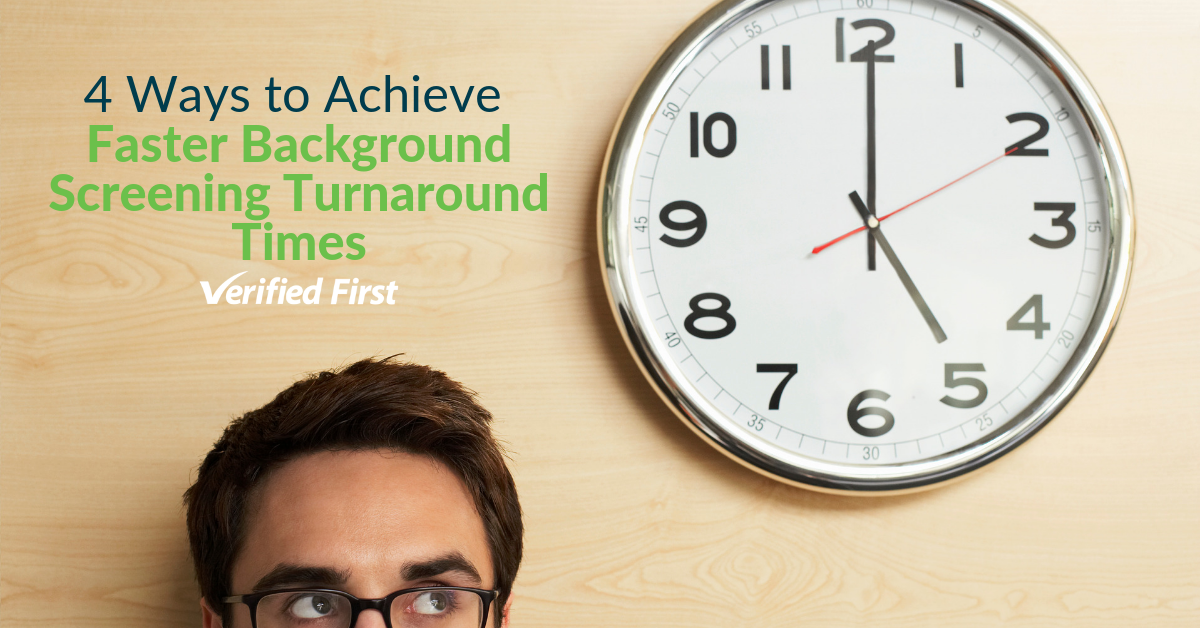
Background screens are a great way to improve your quality of hire and assure that your final candidates are as perfect as they seem. However, if you feel pressured to maintain a fast hire time, you might feel frustrated waiting for a background screen. According to SHRM, most criminal background checks take about 24-48 hours, while more thorough checks can take up to three days. This timeline depends on your candidates, the screens you’re conducting, and your internal processes. But, the wait is over! Here are four ways to decrease your turnaround time for background screens and increase your screening efficiency.
Often, the easiest way to decrease your screening turnaround time is to look internally. Do you have a clear process that includes individual responsibilities and requirements? Like many phases within the hiring process, it’s important to balance the work; if just one person on your team is in charge of background checks, things can get bogged down when they get busy. On the other hand, if your whole team is involved, you might be susceptible to data loss or miscommunication. By refining your process and establishing a strong balance, you can increase overall efficiency.
Spoiler Alert: Some background check providers allow you to assign team members to certain candidates and their background checks-- use this to your advantage to keep things moving quickly.
As we all know, proper consent from applicants is absolutely crucial for FCRA compliance. However, this phase can slow down background checks. Generally, candidates receive an email requesting permission for a background check. The problem is, according to SHRM, only eight percent of candidates respond to their emails (SHRM). This means you’ll have to follow up with candidates. Instead, consider using:
One thing that can limit your screening turnaround time is inaccurate applicant information. If your candidate lists the wrong address or there’s a number off in their social security number, it’s much more difficult to run their screen. Employers usually give candidates two options; they either ask candidates to fill out their information for the employer to share with their background screening provider. Or, candidates can give their information directly to the background screening provider. The latter is often the more efficient way to go as it minimizes the chances of loss or disorganized information.
Criminal record checks are fairly straightforward, and they generally only take a day or two. But, for more senior positions, you’ll likely want to check your candidates’ education, work history, and professional references. At this point, your timing will depend on how long it takes for educational entities or references to get back to you or your background screening company. When budgeting your time, be sure to give some leeway when conducting these types of screens. Additionally, you should communicate any anticipated delay with your candidate. That way, they know that you’re still interested in them, and they’ll be less likely to look for other job options.
With proper planning and communication, background checks can become a seamless part of your hiring process. Learn more about how background checks and fast time to hire aren’t mutually exclusive with our on-demand SHRM webinar with employment attorney & equity partner, Pamela Devata.